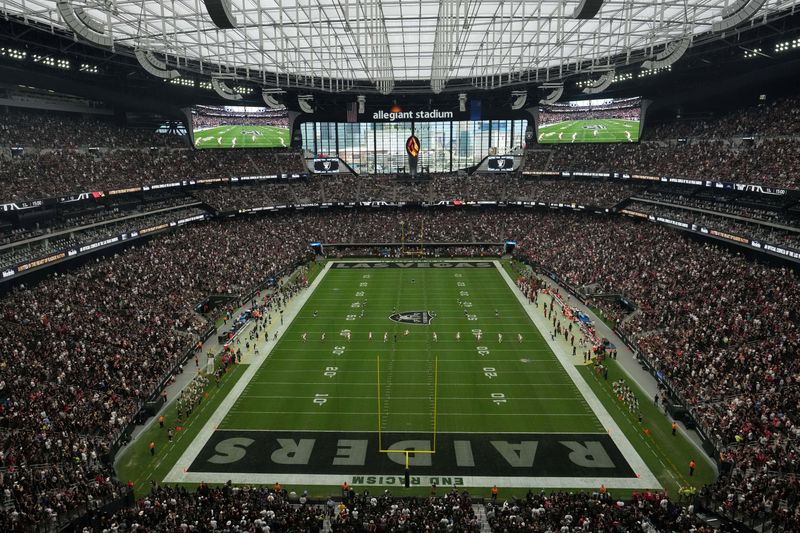By Mike Scarcella
WASHINGTON (Reuters) - The U.S. Supreme Court on Monday declined to hear Oakland's bid to collect more than $240 million in damages from the National Football League and its 32 teams for allowing the Raiders franchise to relocate to Las Vegas in violation, according to the jilted California city, of federal antitrust law.
The justices turned away Oakland's appeal of a lower court ruling in favor of the NFL and the Raiders, which moved to Las Vegas for the 2020 season. Oakland, which the Raiders previously left in order to play in Los Angeles only to return 13 years later in 1995, had sought monetary damages but was not demanding that the Raiders be forced to return to the city.
The court declined review without comment.
Oakland in 2018 sued the NFL and its teams, including the Raiders, accusing them of violating U.S. law on anti-competitive practices. The city's complaint demanded $240 million in damages for lost tax revenue and funds invested in the team's stadium, the Oakland Coliseum. The city accused the NFL of restricting the ability of Oakland "and other host cities to maintain and sponsor an NFL club at competitive prices."
All but one of the NFL's teams, the Miami Dolphins, approved the Raiders' relocation from Oakland to Las Vegas, where they opened the 2020 season at $1.9 billion Allegiant Stadium.
Lawyers for Oakland and the Raiders on Monday did not immediately respond to messages seeking comment.
Attorneys for the league and its teams successfully won dismissal of Oakland's lawsuit in a U.S. district court. The league's attorneys said the city's lawsuit "turns antitrust on its head."
A three-judge panel of the San Francisco-based 9th U.S. Circuit Court of Appeals ruled unanimously in favor of the NFL and the Raiders in December 2021.
The 9th Circuit found that Oakland lacked the proper legal standing to bring antitrust claims in U.S. district court. The "city's damages are highly speculative and would be exceedingly difficult to calculate," the 9th Circuit added.

Oakland's attorneys appealed to the Supreme Court in March and told the justices that "losing any chance at an NFL team caused the city clear and direct economic harm, and that harm is not at all speculative given that Oakland already had a team."
Attorneys for the league and Raiders said in their Supreme Court filing that the 9th Circuit "correctly concluded that alleged injury" to Oakland was "both indirect and too speculative."